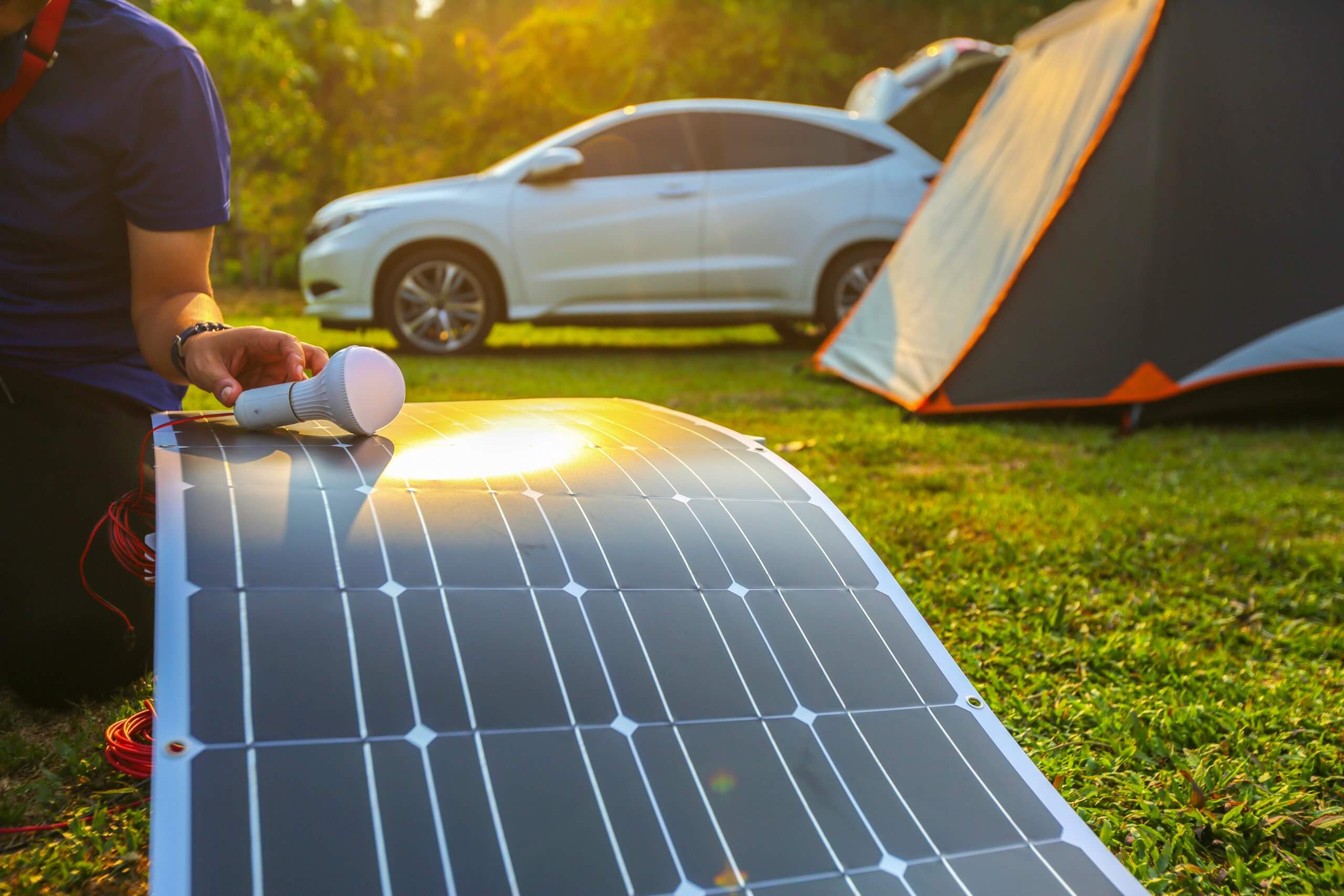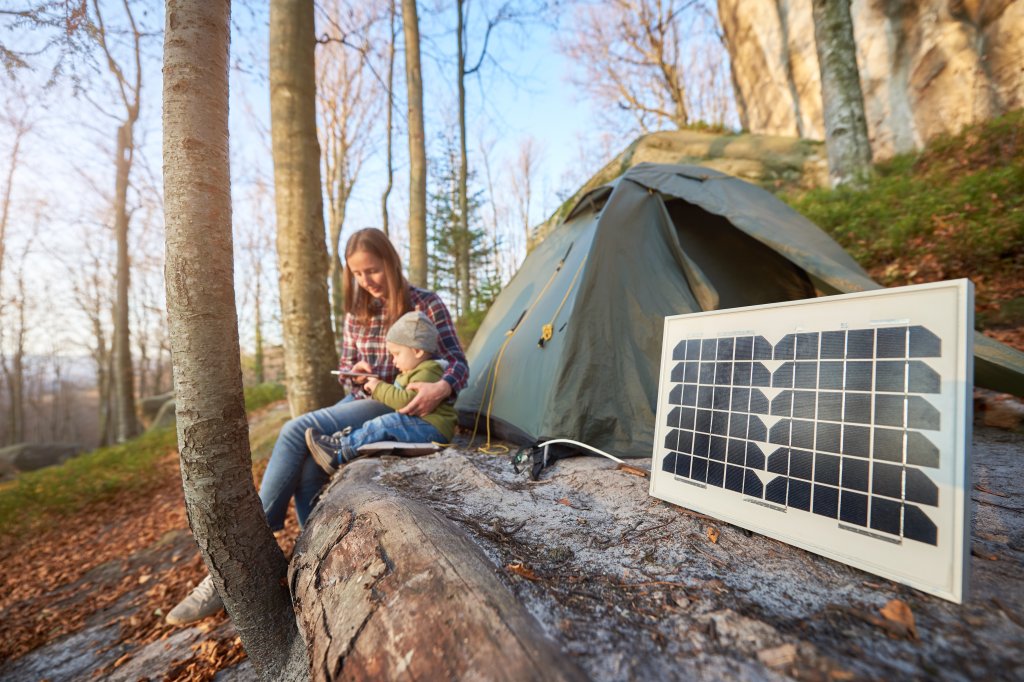It’s convenient to own a portable solar generator. It can supply you with the electricity you need when you spend a few days outdoors, go off the grid in your RV, or experience power interruptions.
While portable solar generators are very handy to have, they’re not exactly cheap. So, you need to get the best one without having to spend too much. The question now is: How do you pick one? Here is a guide that can help you out.
Rated watts
Watt is the measurement of electricity or power. Rated wattage is how much power your portable solar generator can pump out. The higher the rated wattage of your generator, the more appliances and devices it can power.
Before buying your portable solar generator, check all the appliances and devices you intend to power with it. Add up the wattage required for each, and get a solar power generator that can power all your devices.
Peak power
Most appliances and devices don’t consume power at a constant rate. For example, do you know that most electric fans require a quick burst of energy the moment they’re turned on? They require that burst of power to give the fans enough push to spin for the first time. Without that, it will take a few seconds for fans to get to their full speed.
This demand for greater power during startup is often referred to as starting or surging power. Typically, the bigger the appliance or its motor is, the higher its peak or surge power demand, but of course, there’s exception to every rule—power tools for example. So, be familiar with the starting or surging power of electric devices you’ll power with your solar generator.
Because of that need, you shouldn’t only look at your portable solar generator’s rated watts. You should also look for its peak power—the amount of energy it can deliver when there’s a sudden demand for electricity.
Watt-hours
Most portable solar generators nowadays come with batteries. Unlike generators that can pump out a steady supply of electricity, the electrical supply of a solar generator varies a lot depending on the position of the sun in the sky and the presence of anything that can block its light.
A battery serves to store excess solar power for future use when the generator can’t produce enough electricity for the connected devices. Without it, your generator’s rated watt and peak power will be useless if there’s an overcast sky. This creates more difficulty when people have solar heaters for sheds.
So, to make sure your appliances and devices won’t suddenly power down, you need a generator with a battery with a lot of watt-hours. Watt-hours is the number of watts your generator can provide every hour. The higher it is, the longer your batteries can serve you, even if the weather isn’t in the optimal condition for your solar panels.
Recharge time
Typically, a portable solar generator can exceed its rated watts when the sun shines directly on the panels. During those times, your solar panels will produce enough electricity to power your devices and charge your batteries. Because of that, you would want a portable solar generator with a short recharge time to take advantage of this small window of time.
Battery type
Speaking of batteries, you should also be mindful of the type of battery your solar generator has. There are two popular types of batteries: lithium-ion (li-ion) and lead-acid. They differ in price, size, capacity, depth of discharge, efficiency, and lifespan. Li-ion batteries are often the lighter of the two, but they add a lot to the cost of the generator. On the other hand, lead-acid batteries are bulkier—which isn’t ideal for a portable solar generator—but it’s relatively cheaper.
Inverter type
Primarily, solar power generates direct current (DC). Most appliances, particularly the ones you plug into power outlets, require an alternate current (AC). So, for them to use your solar power’s electricity, you must convert its DC into AC first.
An inverter is the answer to this conversion dilemma. But while most inverters would do, note that some appliances—particularly ones with motors, rectifiers, and delicate electronics—won’t work well with certain types of inverters like modified sine wave inverters. If you don’t want to worry about that, you can pick a generator with a pure sine inverter. Doing so will help ensure that your devices and appliances won’t get damaged by electrical noise and will run efficiently.
Extra features

Thankfully, most portable solar generators nowadays can fulfil most consumer requirements. But if you want to get the best bang for your buck, you might want to look at the extra features you may want your generator to have:
- Charging inputs: Some generators can charge their batteries using your home or car’s electricity. It’s handy, especially when the sun doesn’t want to come out.
- Solar panels: Sadly, some stores may make you think you’ll be getting solar panels with your generator. Unfortunately, some brands don’t come with them, so check exactly what you’re getting.
- Expandable electricity storage: If you have batteries lying around that you can bring with you, it would be great if your generator could handle additional batteries.
Conclusion
Above are the things you should check when shopping around for a portable solar power generator. You can also check out online stores like Premier Generator for other generator needs. With some math and careful reading, you can get the one best suited for your needs.

